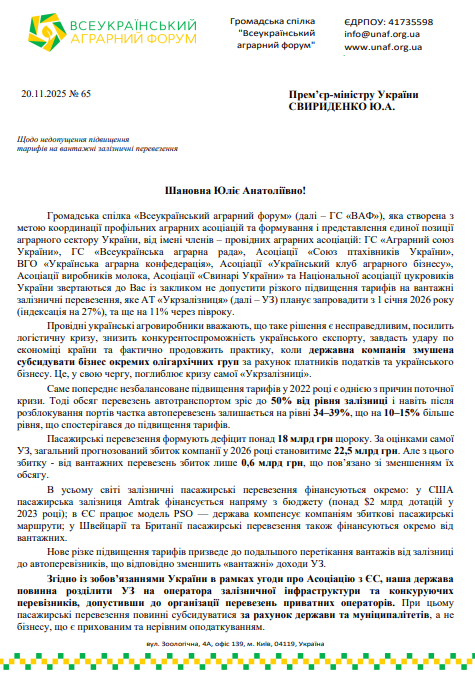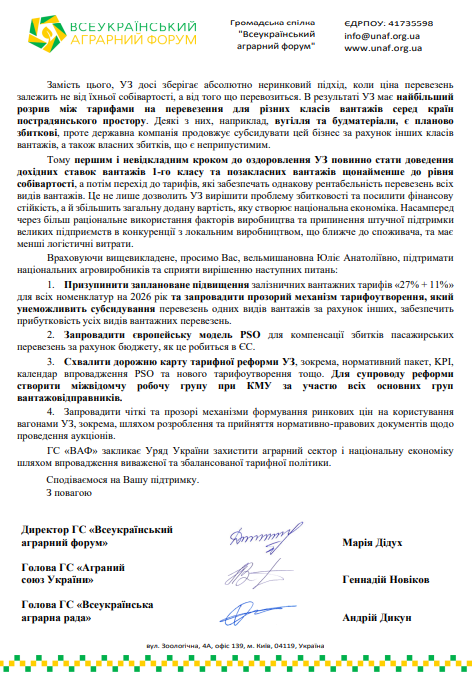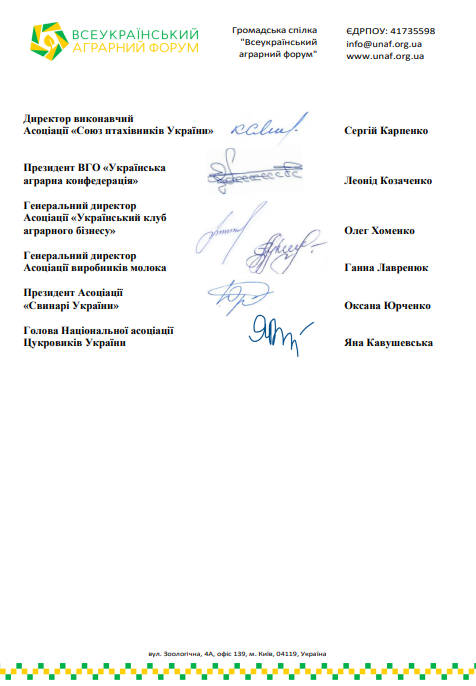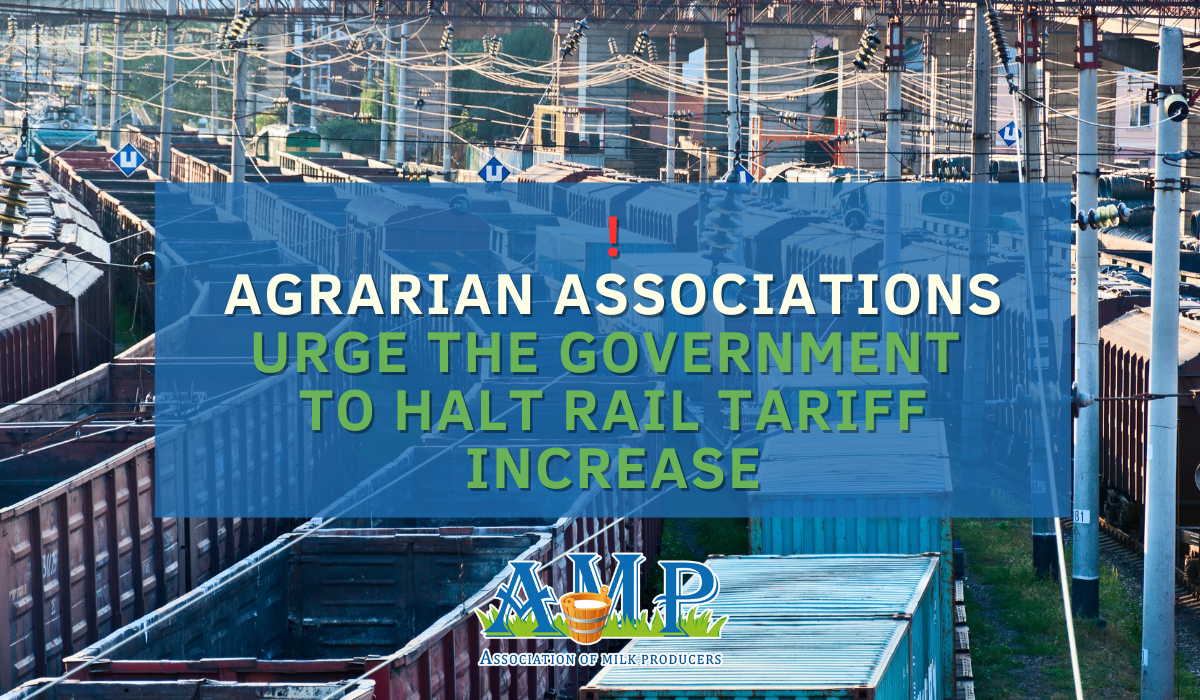The Association of Milk Producers (AMP), along with specialized associations that are part of the All-Ukrainian Agrarian Forum (AUAF), appealed to Prime Minister Yuliia Svyrydenko with a demand to immediately stop the planned increase in freight rail tariffs, which "Ukrzaliznytsia" (Ukrainian Railways) plans to introduce from January 1, 2026—an indexation of 27%, and another 11% six months later.
Ukrainian agricultural producers believe that such a decision is unfair, will intensify the logistics crisis, reduce the competitiveness of Ukrainian exports, deal a blow to the country's economy, and essentially continue the practice where a state-owned company is forced to subsidize the business of certain oligarchic groups at the expense of taxpayers and Ukrainian business. This, in turn, deepens the crisis of "Ukrzaliznytsia" itself.
"The previous unbalanced tariff increase in 2022 is one of the reasons for the current crisis. At that time, the volume of road transport grew to 50% of the railway level, and even after the ports were unblocked, the share of road transport remains at 34–39%, which is 10–15% more than before the tariff increase," the appeal states.
The associations note that the passenger transportation deficit exceeds 18 billion UAH annually, and the total projected loss of UZ in 2026 could reach 22.5 billion UAH. At the same time, only 0.6 billion UAH is attributed to the freight segment.
In most developed countries around the world, financing passenger transportation is the direct responsibility of the state:
"In the US, Amtrak passenger transportation is financed by the federal budget. In the EU, the PSO (Public Service Obligation) model works—the state compensates for losses from passenger transportation. Ukraine must act according to European rules," emphasize the agrarian associations.
The document stresses that "Ukrzaliznytsia" continues to apply a non-market approach to tariff setting: rates depend not on the cost of production but on the type of cargo.
"Among all post-Soviet countries, Ukraine has the largest disparity between tariffs for different classes of cargo. Some cargo is transported below cost, and these losses are covered at the expense of other sectors—the agrarian sector in particular," the document notes.
Agrarians emphasize that this practice contradicts market principles and Ukraine's commitments within the framework of European integration.
In the appeal, the agrarian associations call on the Prime Minister to support the following decisions:
- Suspend the planned UZ tariff increase in 2026 (27% + 11%) and, in parallel, introduce a transparent tariff-setting mechanism that will prevent the subsidization of some cargo at the expense of others.
- Introduce the European PSO model so that the state compensates for passenger transportation losses, as envisioned by the practices of the US and the EU.
- Approve a roadmap for UZ tariff reform with a regulatory package, KPIs, an implementation calendar, and the creation of an interdepartmental working group under the Cabinet of Ministers of Ukraine with the participation of all cargo owner groups.
- Introduce market pricing for the use of UZ wagons and complete the development of relevant regulatory documents.
The agrarian associations warn that in the conditions of war and high logistical volatility, any unjustified tariff decisions could lead to serious consequences for exports.



Press service of the Association of Milk Producers
Follow us on LinkedIn
Related News


